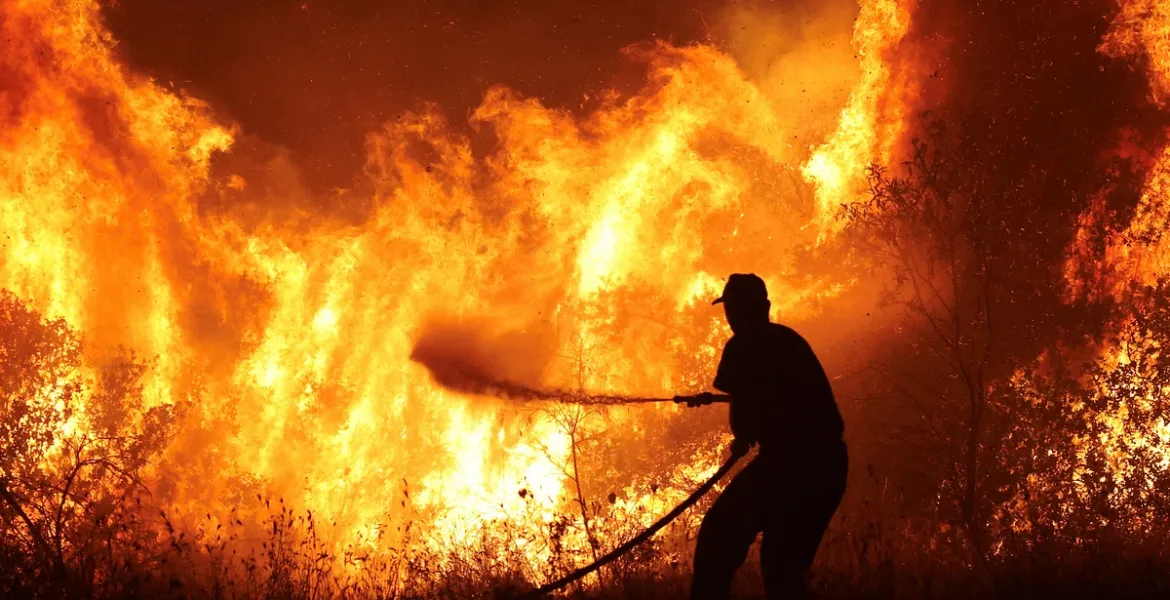Athens : A scorching heatwave gripping Greece this summer has tragically claimed the lives of several tourists and led to alarming disappearances, serving as a stark reminder of the dangers posed by extreme heat. Temperatures soaring above 40 degrees Celsius (104 degrees Fahrenheit) have created perilous conditions, particularly for those engaging in outdoor activities.
The recent death of renowned UK doctor and TV personality Michael Mosley on the Greek island of Symi underscores the severity of the situation. Mosley succumbed to the intense heat while hiking, adding to a growing list of similar incidents. Two French women are currently missing, and several other tourists from the Netherlands and the United States have also tragically lost their lives, all while hiking or walking during extreme temperatures.
"There is a common pattern," revealed Petros Vassilakis, police spokesman for the Southern Aegean, to Reuters. "They all went for a hike amid high temperatures."
This heatwave has exposed the vulnerability of the human brain to extreme temperatures. As Kim Meidenbauer, a neuroscientist at Washington State University, explains, "You’re talking about potentially life-threatening situations, like making poor decisions, having your judgement clouded." The brain plays a vital role in regulating body temperature, and its function is severely compromised in extreme heat.
Professor Damian Bailey, an expert in physiology and biochemistry, emphasizes this point: "The brain, for me, is the key to it all.” Reduced blood flow to the brain in high temperatures can lead to confusion, disorientation, and impaired decision-making, increasing the risk of accidents and heatstroke.
Older adults, young children, pregnant women, and individuals with pre-existing health conditions are particularly susceptible to heat-related illnesses. Notably, the recent victims in Greece were all in their mid-50s and older.
Safety Recommendations for Tourists:
- Avoid strenuous activities: Refrain from hiking or engaging in intense physical activity during the hottest parts of the day.
- Stay hydrated: Drink plenty of water throughout the day and avoid alcohol.
- Dress appropriately: Wear loose-fitting, light-colored clothing, a wide-brimmed hat, sunglasses, and use high SPF sunscreen.
- Seek shade: Take frequent breaks in shaded areas to avoid prolonged sun exposure.
- Plan ahead: Research hiking routes, inform someone of your plans, and consider using location-sharing apps.
- Recognize warning signs: Be aware of heatstroke symptoms like dizziness, weakness, headache, and nausea. Seek medical attention immediately if you or someone you are with experiences these symptoms.
Tips for Safer Hiking in Hot Weather:
- Choose cooler destinations and seasons: Opt for destinations with milder climates during the summer months.
- Adjust your schedule: Hike during cooler times of day, such as early morning or late evening.
- Plan rest stops: Map out your route and include regular breaks in shaded areas.
- Pack strategically: Carry plenty of water, snacks high in water content, and a first-aid kit.
- Stay informed: Check weather forecasts regularly and be prepared to adjust your plans accordingly.
This tragic series of events serves as a crucial reminder for tourists to prioritize safety and take necessary precautions when traveling to regions experiencing extreme heat. By staying informed, planning ahead, and being aware of the dangers, visitors can minimize risks and enjoy a safe and enjoyable trip.


